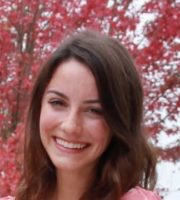
Exemption cannot create an ‘undue hardship’ for the school
A historically black and Methodist university in Atlanta will consider allowing students and employees to receive a medical exemption from its COVID vaccine mandate for the fall.
But first, Clark Atlanta University said, officials may consult “with your religion’s spiritual leader” or “ religious scholars.”
“When requested, the University will provide an exemption/reasonable accommodation for students’ and employees’ sincerely held religious beliefs and practices which prohibit the student or employee from receiving a COVID-19 vaccine,” the university’s form said. Officials may “discuss the nature” of the applicant’s beliefs and practices with leaders of the student’s faith, the form said.
However, the exemption will be granted only if “the requested accommodation is reasonable” and will not “create an undue hardship for the University or pose a direct threat to the health and/or safety of others” at the school. The university underlined and italicized the caveat section of its policy.
Jolene Butts-Freeman, the university’s communications director, did not respond to two emailed requests for comment from The College Fix sent on July 2 and July 8.
The Fix asked her why the university would not accept a personal statement of someone’s beliefs and what the theological background is of the staff in charge of reviewing exemption requests. The Fix also asked for data on how many students had been vaccinated so far and how many had requested exemptions.
Two law professors are concerned about fraudulent religious requests
Two law professors, one who researches vaccine policy and one who studies religious liberty issues, weighed in on the new form and religious exemptions in general.
Dorit Reiss, a law professor at University of California Hastings College of Law, told The College Fix that an investigation into religious beliefs is a “tempting approach” but puts the university on “tricky ground.”
Professor Reiss, who is also a member of the Vaccine Working Group on Ethics and Policy, said Clark University’s guidelines “can lead the university into several pitfalls in implementing religious exemptions – and the university needs to be careful in how it’s implementing this.”
“What about students without religious leaders, who are drawing on personal belief?” Reiss asked. “How will the university make sure that it is not discriminating against students without religious leaders but with opposing personal beliefs?”
“The university cannot refuse an exemption because the religious leader says it’s not against
the religion,” Reiss said, “because the question is whether it’s against the student’s sincere belief. It is not the university’s job to enforce the religion’s tenets on its believers. The focus is on personal beliefs.”
However, Reiss said that university officials “have the right to examine sincerity, and examine whether the matter is really a religion – it has to be part of a general set of beliefs about fundamental things.”
She warned about “anti-vaccine sources on how to write a convincing religious exemption and anti-vaccine activists who made a career out of helping people get religious exemption and game the system.”
“One reason I think religious exemptions are problematic is that the rules about policing them make it hard to prevent abuse, and frankly, privilege students who are sophisticated liars – or who talk to people who advise them what to say,” she said.
Religious liberty advocate said Clark Atlanta is right to probe student’s beliefs
Her concerns about fake religious exemptions were echoed by Professor Douglas Laycock at the University of Virginia.
While he said he “generally believe in very strong protections for the free exercise of religion” and noted his advocacy for it in front of the Supreme Court, Congress and state legislatures, Laycock said the university “has ample reason to require everyone who is medically eligible for vaccination to be vaccinated.”
“Some people can’t be vaccinated for medical reasons,” Laycock said, and argued that unvaccinated people “are a threat to everyone around them.”
He said that “no religion that I know of teaches resistance to vaccinations” and said “individuals have religious beliefs not reflected in the teachings of any organized religion.”
“You are right that schools should generally not probe into claims of religious belief,” Laycock said.”But this is a context where it has to if it means to allow religious exemptions at all.”
“There will be a lot of phony claims,” Laycock predicted.
MORE: Make life ‘hard’ for unvaccinated people, GWU professor argues
IMAGE: Prazis Images/Shutterstock.com
Like The College Fix on Facebook / Follow us on Twitter





Please join the conversation about our stories on Facebook, Twitter, Instagram, Reddit, MeWe, Rumble, Gab, Minds and Gettr.